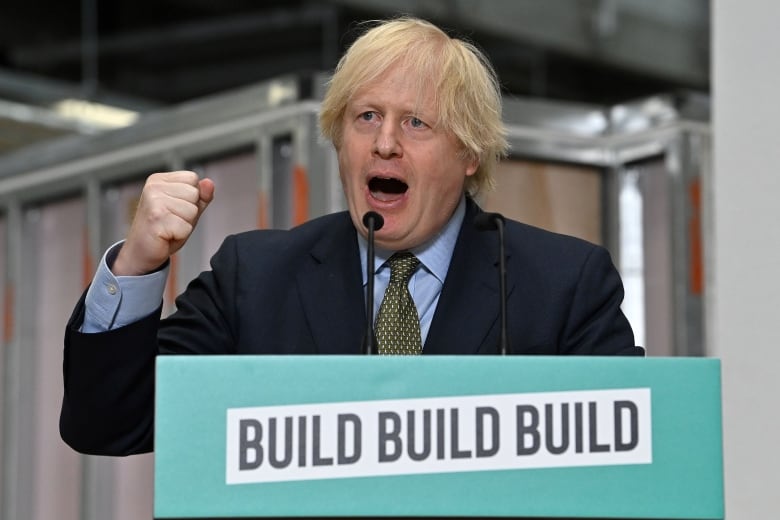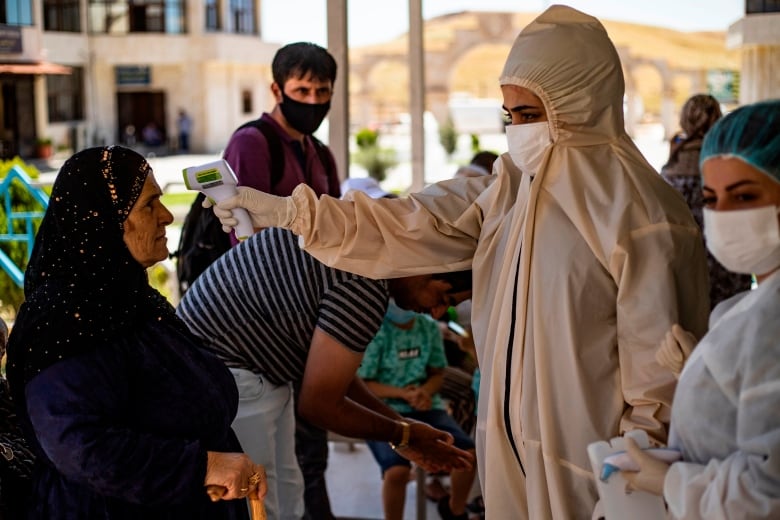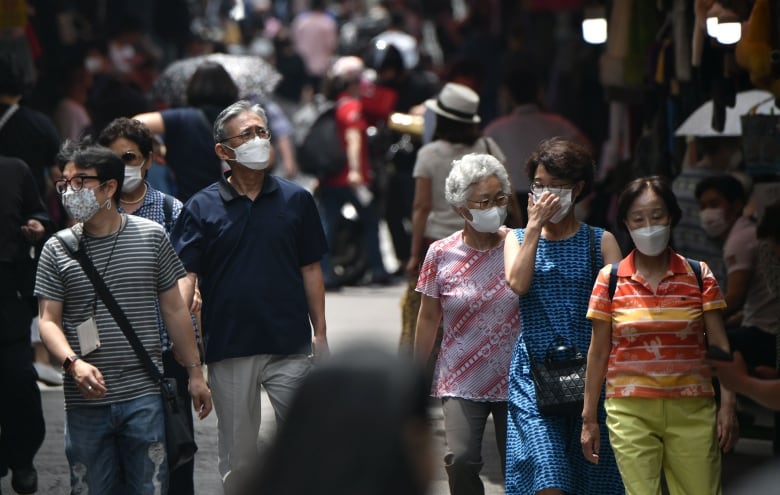Cities and States reverting to lockdown measures as virus cases climb
The Associated Press · Posted: Jun 30, 2020
Cities and States across the U.S., United Kingdom and Australia are closing businesses and reverting back to lockdown measures as coronavirus numbers surge following a spate of recent reopenings.
In the United States, cases are surging in the south and southwest. At least a dozen states and cities are revising plans to reopen.
California and Texas saw record spikes in new infections on Monday, and Los Angeles reported an “alarming” one-day surge in America’s second-largest city that put it over 100,000 cases.
Los Angeles County ordered all its beaches closed for the Fourth of July after reporting its highest single-day number of new cases.
In Australia, Melbourne will lock down dozens of suburbs for a month in a bid to contain the spread of the novel coronavirus. Residents will face fines if they leave home for reasons other than to give or receive care, to exercise, to buy essentials or to go to work or school. People who live outside those suburbs will only be allowed to enter them for the same reasons.
And the U.K. said Tuesday it will introduce legal changes shortly to enforce a lockdown imposed on the English city of Leicester where there has been a flare-up of the virus. This comes as the nation’s COVID-19 death toll has hit 43,659, according to John Hopkins University, underlining the country’s status as one of the worst hit in the world.
In a statement in parliament, Health Secretary Matt Hancock said the government won’t be recommending that the city joins in the easing of the lockdown in England that is due to take place on Saturday, which includes the reopening of pubs and restaurants.
He also said non-essential retailers, such as department stores and electronic retailers, will have to close again, two weeks after they reopened.

U.K. Prime Minister Boris Johnson delivers a speech during his visit to Dudley College of Technology in Dudley, central England on Tuesday. Johnson said Britain needs the type of massive economic response that former U.S. president Franklin D. Roosevelt mobilized to deal with the Great Depression. (Paul Ellis/Pool/AFP/Getty Images)
Prime Minister Boris Johnson has promised to shake Britain’s economy out of its coronavirus-induced crisis, saying on Tuesday he wants to fast-track infrastructure investment.
“We cannot continue simply to be prisoners of the crisis,” Johnson said. “It’s absolutely vital for us to set out the way ahead, so that everyone can think and plan for the future — short, medium and long term.”
Johnson is looking to move past criticism of his government’s handling of the pandemic with a plan to repair the economic damage and reshape the country.
What’s happening with COVID-19 in Canada
As of 10 a.m. ET on Tuesday, Canada had 103,918 confirmed and presumptive coronavirus cases. Provinces and territories listed 67,178 of the cases as recovered or resolved. A CBC News tally of deaths based on provincial reports, regional health information and CBC’s reporting stood at 8,617.
B.C. Provincial Health Officer Dr. Bonnie Henry said news of COVID-19 exposure at a Vancouver strip club should serve as a reminder that the provinces needs to stay vigilant about preventing spread of the virus.
“It is a team effort that we need to continue together in B.C.,” Henry said. “One slip is all it takes.”
During Monday’s daily briefing, Henry said another 26 new cases of COVID-19 have been confirmed in B.C. since Friday, but no more deaths have been reported.
Meanwhile in Ontario on Tuesday morning, Toronto’s mayor and medical officer of health recommended that non-medical masks and face coverings be made mandatory in indoor public spaces.
“It is about respecting and protecting each other,” Mayor John Tory said at a morning news conference. He said it will be a key element to reopening the city safely.
“We hope there are more and more people out in the stores and in the businesses across the city. We want that to happen for the sake of our economy and for the sake of returning to a nearer to normal kind of life.”
On Monday, the province’s health ministry rejected a call by some municipal leaders for a provincial mandatory mask policy, saying it “isn’t necessary” to require all residents to wear face masks when they are indoors in public spaces in large urban centres.
In an email on Monday evening, Alexandra Hilkene, spokesperson for Health Minister Christine Elliott, said local medical officers of health have the power to implement mandatory face mask policies in their respective health regions under existing legislation.
“Doing so at a local level would ensure responsiveness to community needs without applying the same policy to regions with little or no COVID,” Hilkene said in the email.
What’s happening around the world
The United Nations pushed governments at a virtual conference on Tuesday for nearly $10 billion in aid for Syria, where nine years of war has displaced millions in a humanitarian crisis exacerbated by soaring food prices and the coronavirus pandemic.

The UN is pushing governments for nearly $10 billion US in aid for Syria to curb the spread of COVID-19. (Delil Souleiman/AFP/Getty Images)
“Syrian men, women and children have experienced injury, displacement, destruction, terror … on a massive scale. The danger of COVID-19 remains acute,” said UN Special Envoy for Syria Geir Pedersen.
According to the Johns Hopkins tally, there have only been 269 confirmed cases, but the World Health Organization (WHO) has warned the real situation is probably far worse and the number of infections likely to accelerate.
South Korea has reported 43 newly confirmed cases of COVID-19 from across the country as infections begin to spread beyond the greater capital area, which has been at the centre of a virus resurgence since late May.
The figures announced by South Korea’s Centers for Disease Control and Prevention on Tuesday brought national totals to 12,800 cases, including 282 deaths. Seventeen of the new cases came from the Seoul metropolitan area, where about half of South Korea’s 51 million people live, while infections were also reported in other major cities such as Daejeon, Gwangju, Busan and Sejong.

Pedestrians wearing face masks walk through a market in central Seoul. Korea reported 43 newly confirmed cases of COVID-19 from across the country on Tuesday as infections have begun to spread beyond the greater capital area. (Jung Yeon-je/AFP/Getty Images)
Twenty of the new cases were linked to international arrivals.
Uzbekistan has imposed an overnight curfew in some parts of the country, including the capital Tashkent, as it seeks to curb a fresh rise in infections following the gradual lifting of a two-month lockdown.
The Central Asian nation had been cautiously lifting a nationwide lockdown that had been in place in April and May. However, after a decline in COVID-19 cases between mid-April and mid-May, it has once again seen a steady rise.
The new restrictions will see residents of “red” and “yellow” areas deemed at higher risk barred from leaving their homes between 11 p.m. and 7 a.m. local time except for medical emergencies, the government said on Tuesday.





